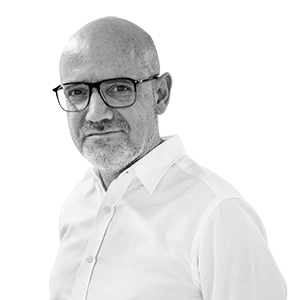

Madrid"As President of this Parliament, in 2007, I had the opportunity to tell Putin face to face, after the murder of the journalist Anna Politkovskaya: 'We will not exchange human rights for your gas'". This sentence, pronounced in the European Parliament last Tuesday by Josep Borrell, the European Union's High Representative for Foreign Affairs and Security Policy, drew a unanimous round of applause from MEPs, some of whom even rose to their feet, and was the highlight of the day. It was undoubtedly the high point of Borrell's career. The Catalan politician, who was received with certain scepticism at European institutions when he arrived in 2019, has seen his position strengthened and has managed to become the voice of an unusually united European Union in the wake of the Russian invasion of Ukraine. But this was not always the case.
Many people who have worked or dealt with him agree in saying that he is arrogant, haughty, distant and condescending, as was made evident during the incident he starred in at the beginning of his mandate when interviewed by an English journalist from a German television station who asked him why Spain did not take on constitutional reform. Borrell lost his temper and left the set shouting "Stop it, stop it".
Initial scepticism
Journalist Alexandra Brzozowski of European communication network EURACTIV explains to ARA that Borrell's arrival in Brussels was indeed received coldly: "In the beginning, the Brussels perception among many reporters was that yes, he was an experienced politician, but not necessarily a diplomatic diplomat, considering he had several missteps in his one year as foreign minister of Spain plus his age was a question mark regarding the active travel schedule that the job requires." Moreover, according to Brzozowski, he made his biggest mistake during his visit to Moscow, where Russian Minister Serguei Lavrov humiliated him by comparing the situation of the opposition leader Navalni to that of Catalan pro-independence political prisoners.
But with this crisis everything has changed. The journalist specialised in European foreign policy considers that "the Russian invasion of Ukraine has had a considerable impact on how the EU’s chief diplomat and his ideas for the Strategic Compass, which has somewhat become his personal project, are perceived".
And what is the strategic compass? A plan he has designed to increase Europe's strategic autonomy, basically in the field of energy but also to increase its deterrent power, that is, its military force so it may face down challenges such as the one posed by Putin. Borrell has the authority to say that he has been warning that Russia's energy dependence is a problem for the past 20 years. These days a video is doing the rounds on social media where he is seen talking about the issue in the campaign for the 2009 European elections. At an event in Oviedo he says things like "you young people think that the natural state of things is peace, but no, it is war" or that "Europe imports 70% of the energy it consumes from Russia and the Arab countries, which cannot be trusted", with his classic brazenness.
The Portuguese Pedro Marques, vice-president for Foreign Affairs of the European Socialist group, explains to ARA that Borrell has "credibility" for having defended these ideas for years. Marques believes that Borrell has earnt the respect of the members of the European Council. "He has been very important when it came to approving sanctions against Russia: he convinced everyone in a very short time to achieve a unanimity that we had never had before."
And finally there is a factor that is also decisive: his strong personality, which we have already seen can lead him to mistakes as well as to a leading role in a Europe lacking leaders. "In a crisis like this his character helps: war needs strong people with clear ideas, and he has them."
Language of power
Alexandra Brzozowski also agrees: "now the declarations about the EU needing to speak the ‘language of power’ suddenly make sense and are also matched with actions, probably for the first time." In other words, the first time that the EU has adopted very tough sanctions against a power like Russia and has had to use an almost warlike language, it has found in Borrell the right person, someone who does not share the classic European mellifluous rhetoric and who advocates that the EU should be a real power in all areas, including the military.
In conclusion, Borrell, who believes in the EU, faces Vladimir Putin, who does not recognise it and treats it with contempt. And what could be better than an unfriendly and even unpleasant person, capable of defending the need to "disinfect" Catalan sovereigntists, to give a voice to a Europe that needs, for the first time in many years, to be a little bit scary?
